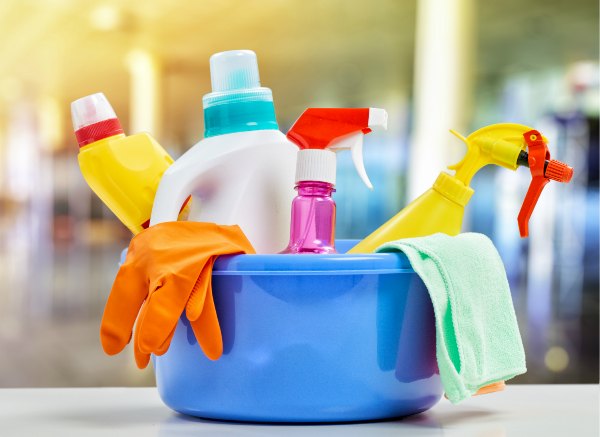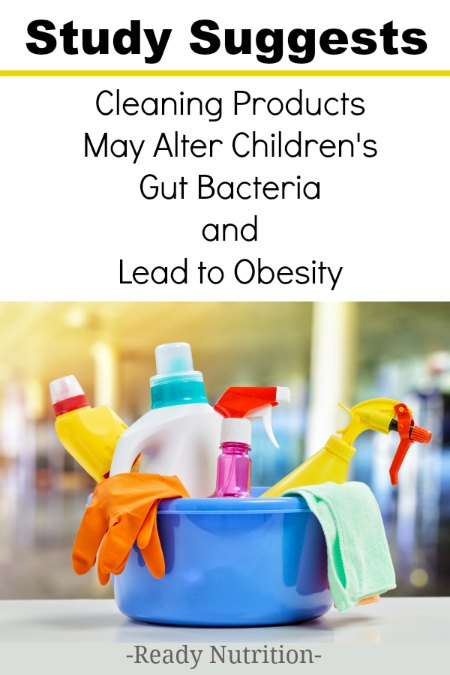
The father of modern medicine was way ahead of his time. While gut health has not been linked to every disease (yet!), a growing body of research into the gut microbiota is revealing just how important the communities of bacteria that reside there are to our overall health.
Obesity is one serious health issue that studies have linked with gut bacteria imbalances.
How can bacteria in our gut affect our weight? Anthony L. Komaroff, M.D., Editor in Chief of Harvard Health Letter, explains:
When we eat food, our gut breaks it down into small pieces. Only the smallest pieces get absorbed into our blood. The rest is eliminated as waste material. In other words, not all of the calories in the food we eat get into our body and increase our weight. The gut bacteria help break down food. Some bacteria are better able to chop food into those smallest pieces that get digested, add calories to our body and thereby tend to increase our weight. Theoretically, if our guts have more of those kinds of bacteria, it should be harder to lose weight.
Scientists continue to explore the role that chemicals play in weight gain and obesity. According to the National Institute of Environmental Health Sciences, more than 80,000 chemicals are registered for use in the United States. Some of these chemicals interfere with how the body’s hormones function:
The ones that impact hormones are called endocrine disrupting chemicals, or endocrine disruptors, and are linked to a variety of diseases.
Some endocrine disruptors have been shown to be obesogens, or involved in weight gain, and may be contributing to the obesity problem in this country. The term obesogens was coined around 2006, based on the knowledge that exposures during early development to specific chemicals were found to disrupt normal metabolic processes and increase susceptibility to weight gain across the lifespan. Poor nutrition and lack of exercise are known contributors to obesity, but these chemicals may also be contributing.
The list of chemicals that may be obesogens includes a few that you’ve likely heard of before: triclosan, phthalates, bisphenol A (BPA), polychlorinated biphenyls (PCBs), atrazine, organotins (including tributyltin), and perfluorooctanoic acid (PFOA).
In May 2018, the European Society of Endocrinology presented research on obesogens at their annual meeting. In a related press release, the group noted that “Obesity increasingly affects millions of people worldwide, with cases rising sharply in young children and babies – a trend which is not explained by evolving diets and lifestyles alone.”
Here’s more from the press release:
Dr. Ana Catarina Sousa and her research group, from the Universities of Aveiro and Beira Interior, Portugal, reviewed existing and new epidemiological surveys and animal studies, and showed that the most important sources of exposure to obesogens indoors are diet, house dust, and everyday products such as cleaning chemicals, kitchenware or cosmetics.
Obesogens can be found almost everywhere, and our diet is a main source of exposure, as some pesticides and artificial sweeteners are obesogens. Equally, they are present in plastics and home products, so completely reducing exposure is extremely difficult – but to significantly reduce it is not only feasible, but also very simple”, Dr Sousa says.
The findings of a new study suggest that commonly used household cleaners could be making children overweight by altering their gut microbiota. While this study did not differentiate cleaning products by brand name or the presence of specific ingredients, it’s findings are concerning.
The study, published in the Canadian Medical Association Journal on September 17, analyzed the gut flora of 757 infants from the general population at age 3-4 months and weight at ages 1 and 3 years, looking at exposure to disinfectants, detergents and eco-friendly products used in the home.
The researchers found that frequent use of household disinfectants like multi-surface cleaners was linked to lower levels of Haemophilus and Clostridium bacteria, but higher levels of Lachnospiraceae in the gut flora of babies 3 to 4 months old. The body mass index (BMI) of the children was higher at age 3.
Anita Kozyrskyj, a University of Alberta pediatrics professor and principal investigator on the SyMBIOTA project (an investigation into how alteration of the infant gut microbiome impacts health), elaborated on the finding:
“We found that infants living in households with disinfectants being used at least weekly were twice as likely to have higher levels of the gut microbes Lachnospiraceae at age 3-4 months; when they were 3 years old, their body mass index was higher than children not exposed to heavy home use of disinfectants as an infant.”
Children living in households that used eco-friendly cleaners had different microbiota and were less likely to be overweight as toddlers, Kozyrskyj said:
“Those infants growing up in households with heavy use of eco cleaners had much lower levels of the gut microbes Enterobacteriaceae. However, we found no evidence that these gut microbiome changes caused the reduced obesity risk.”
Families that use eco-friendly products are also likely to have healthier lifestyles overall, which may mean that other factors played a role in the study’s findings.
However, studies in piglets have found similar changes in the gut microbiome when exposed to aerosol disinfectants.
Lachnospiraceae are a family of bacteria in the order of Clostridiales that appear in human and mammal gut microbiota. Members of this family may protect against colon cancer in humans by producing butyric acid.
Having a diverse community of bacteria in our gut is ideal. The more balanced our diet is to sustain and feed those bacteria, the less chance there is of one type of problematic bacteria taking over.
“Antibacterial cleaning products have the capacity to change the environmental microbiome and alter risk for child overweight,” the study’s authors wrote. “Our study provides novel information regarding the impact of these products on infant gut microbial composition and outcomes of overweight in the same population.”
Dr. Gina Posner, a pediatrician at MemorialCare Orange Coast Medical Center in California, told Healthline the findings aren’t that surprising:
“There have been recent studies showing the importance of gut bacteria on weight. If you are using lots of chemicals that then kill that bacteria, it only makes sense that this could lead to problems with weight.”
While more research is needed, some experts say there are some things we can learn from this study.
“Hopefully, people will realize that it is not always good to keep things that clean,” Dr. Posner explained to Healthline. “Don’t obsess about your child getting sick and touching ‘dirty’ surfaces. It is good for your future health to be exposed to different bacteria and viruses. Obviously, we still want to emphasize hand-washing, but over-cleaning can lead to problems as well.”
While it is difficult to entirely avoid obesogens and endocrine disruptors, there are things you can do to minimize your family’s exposure:
- Break up with plastic. Here’s a list of 9 ways to do that.
- Buy non-toxic, reusable shopping bags, lunch bags, and sandwich and snack bags.
- Store food in glass, stainless steel (Amazon link), and Corning Ware containers. Cook with cast iron instead of nonstick cookware, Teflon, or aluminum.
- Avoid the use of plastic water bottles. Try glass or stainless steel bottles instead.
- Do not feed your babies and children from plastic bottles and cups. Use glass baby bottles and stainless steel sippy cups instead.
- Buy (or grow) pesticide-free fruits and vegetables.
- Remove shoes when entering your home to avoid bringing in contaminants.
- Vacuum often, using high-efficiency particulate air (HEPA) filters. Dust frequently, using a damp cloth.
- Avoiding over-cleaning, and use products that do not contain obesogens.
- Do not use antibacterial soaps. Make your own eco-friendly hand sanitizers.
- Try tea tree oil instead of harsh chemical sanitizers and chemical insect repellents.
- There are many inexpensive, easy-to-use natural alternatives to harsh chemical cleaning products. Here’s a list of 9 to get you started.
- Make your own all-purpose household cleaning products – and try these 10 DIY formulas.
- Read labels, and choose eco-friendly, safe baby care products that do not contain obesogens or other potentially toxic chemicals.

